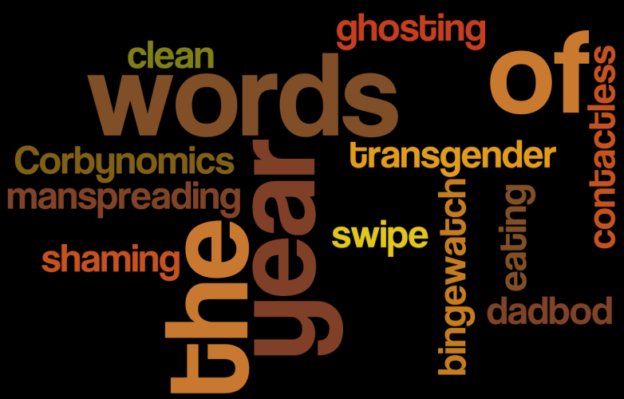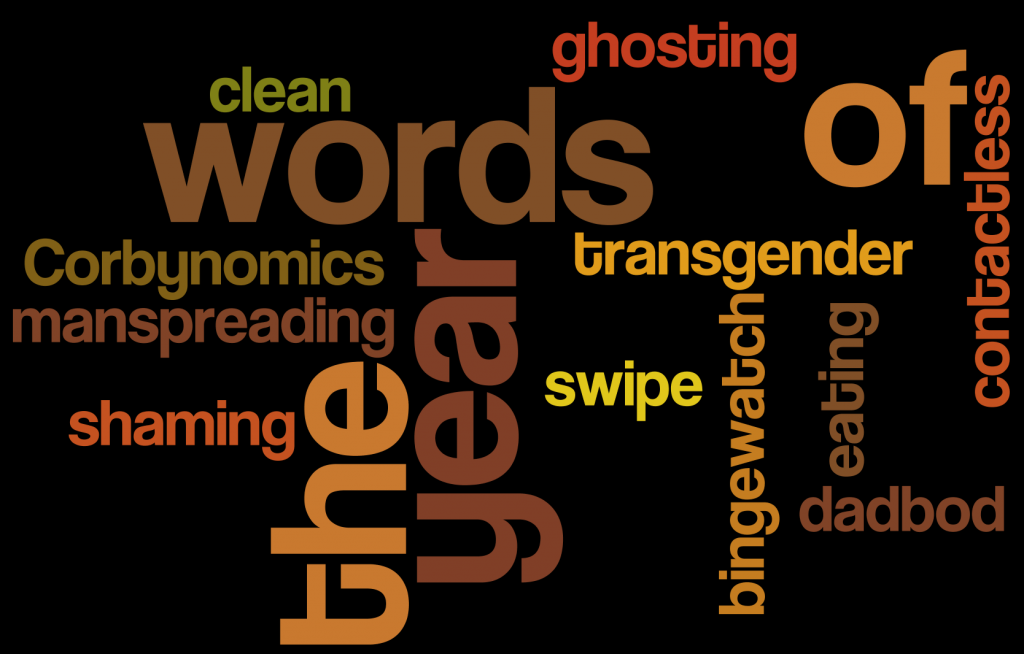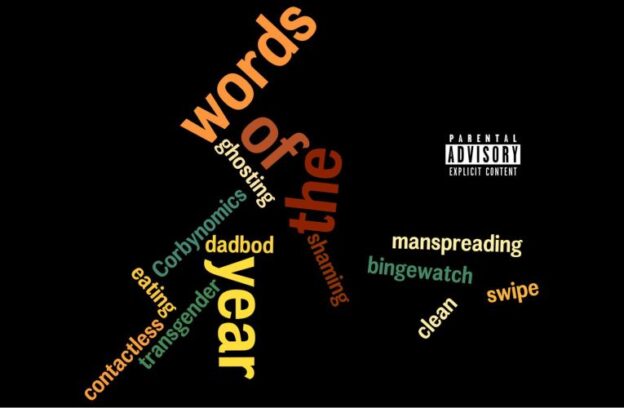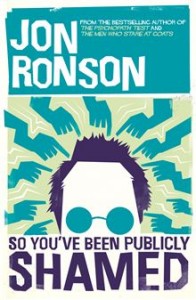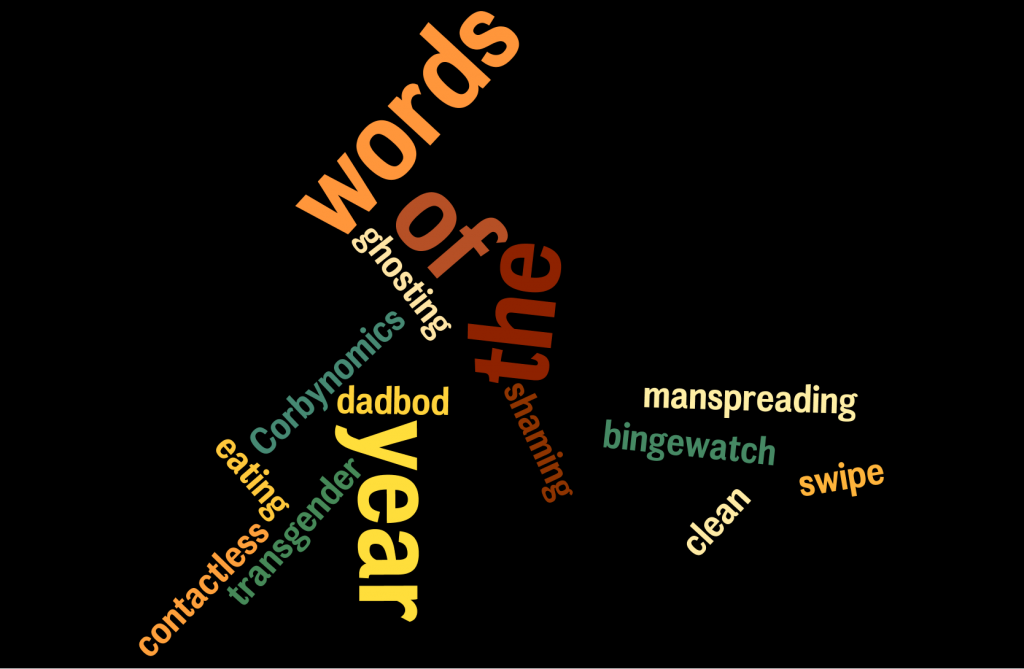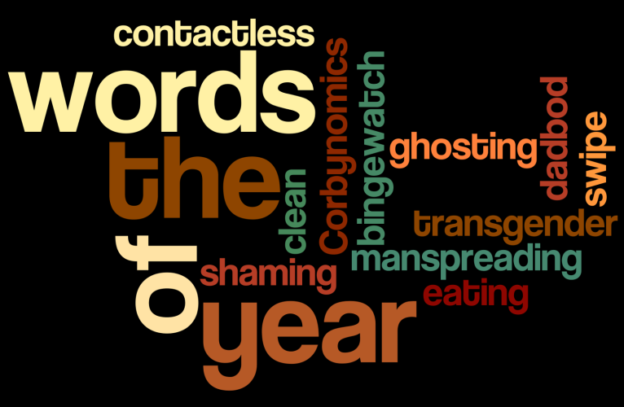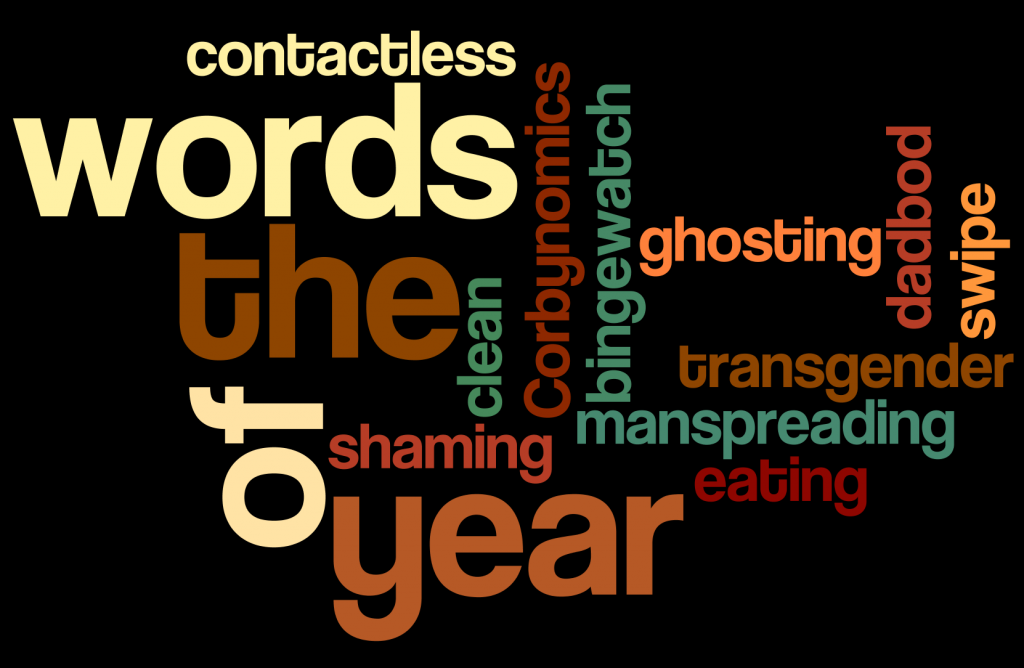The first part of an episode series about trending vocabulary – words which have been used a lot in the last couple of years. Listen to me talk about words chosen by Collins Dictionaries as their “Words of the Year”. This first episode focuses on how publishers use big data and then lots of discussion about the 2017 word of the year, which was fake news.
[DOWNLOAD]
Episode Transcript (95% complete)
Introduction
Hello hello!
This episode series (and it will be a series of at least 3 episodes) is all about the Words of the Year. It’s going to contain vocabulary and some general discussion from me about current issues in politics, life and culture.
I originally prepared this episode a year ago in 2017 when the Collins online dictionary released their words of the year for that year, but I never got round to recording it.
Now it’s a year later and Collins have released a new list for 2018, so I thought I’d record and publish the episodes about the words from 2017 and then do 2018’s words as well. That’s what this series will be – The Words of the Year for the last two years running.
I still doesn’t feel completely ready to record this and I’m sure there’s more preparation work to be done, but I’ve decided “Oh, what the hell, it’s time to record this”. Sometimes you can just spend forever preparing and still not feel like it’s ready, so here it is, even though this will probably get into some slightly touchy areas of politics in some cases.
Actually, I think this is one of the reasons I didn’t record this episode, because it’s quite hard to talk about some of these words and their contexts without getting all bogged down in the politics of the moment, and frankly a lot of things about the politics of the moment are just exhausting and divisive, meaning – the topic just divides people and triggers people and I don’t need to do that. But I will talk about these things a bit on this podcast for learners of English because it’s worth exploring some touchy subjects sometimes so you can hear the language that relates to these topics, and these are very current topics.
By the way, getting triggered – this is an expression that’s been used a lot over the last few years. If someone gets triggered it means they have a quick and strong emotional reaction to something. It could mean getting angry when someone says a particular thing or talks about a certain topic in a certain way. It’s associated with people getting angry online.
For example, if I started talking about Trump in a negative way, any Trump supporters listening might get triggered and might write some quick, angry message in the comment section and it’s obvious that I upset this person just by even mentioning Trump name in a less than flattering context.
That’s just an example, but really triggered has a more serious meaning and it’s when something reminds people of a past traumatic experience. Like, a war veteran who had horrible experiences and is living with post traumatic stress syndrome (PTSD), they might be struggling to deal with the emotional and sensory stress of having been in war and perhaps loud noises in a film or loud fireworks at night could trigger their PTSD, causing them to be brought back emotionally or mentally to the battlefield.
Also, people suffering from drug or alcohol addiction who are clean – they’re avoiding drink or drugs, but something might trigger their old behaviour to come back, like perhaps getting involved with an ex-girlfriend or boyfriend and then arguing and splitting up with that person, this could trigger cravings for the drugs or alcohol they used to use a lot in the past.
Also, a trigger in a gun is the part of the gun that causes it to fire. You press the trigger with your finger, and bang!
So you can see where the words trigger or triggered come from.
This is not even one of the words of the year, but I mention it here because I really hope you don’t get triggered by anything in this episode. Instead I’m just talking about some topics that are very current and which probably affect all of our lives in some way. I hope you don’t get triggered by any of it. Not all of it is of political nature, as you will see.
I think my audience aren’t the sort of people to get triggered easily. I don’t think you’re the sorts of people who have knee jerk reactions.
So anyway this is the beginning of this series about the words of the year for the last two years, starting with 2017 and then moving on to 2018. For the 2017 words I’ll be on my own and for the 2018 words I expect to be joined by PODPAL Amber Minogue. OK? Good.
So let’s start with the 2017 Collins Words of the Year. Here we go.
This episode is all about 10 words which were used so much in 2017 that they were put into a list of “the words of the year” by the makers of Collins Dictionary. In this episode I’m going to go through the words, make sure you all are clear about what they mean and then just discuss the issues that relate to these words.
Basically, this episode could even be called “Some of the big issues of the moment” because these words and phrases represent big movements and issues in culture that have been reported on, discussed and talked about a lot recently.
What are “The Words of the Year”?
Every year Collins (the dictionary publisher) publishes its “Words of the Year” list. It’s also done by other dictionaries including Oxford and Merriam-Webster.
In 2015, if you remember, I talked to Amber and Paul about the Collins words of the year, which included the words binge-watch (meaning to watch lots of episodes of a TV show in one long session) and manspread (the way men sit with their legs wide apart, taking up a lot of room and imposing themselves on a situation).
In 2016 the Collins word of the year was Brexit, for obvious reasons. The Oxford word of the year in 2016 was post-truth, defined by the Oxford Dictionary online as:
Relating to or denoting circumstances in which objective facts are less influential in shaping public opinion than appeals to emotion and personal belief.
For example, ‘in this era of post-truth politics, it’s easy to cherry-pick data and come to whatever conclusion you desire’.
So that was 2015 and 2016 but now let’s talk about the words of the year again – this time for 2017. I know this is last year (I’m recording this in 2018), but honestly these words are still very much at the centre of what’s going on. I started planning this episode last year and only now am I managing to record it. So it’s a bit overdue, but this is still worth doing, these words and issues are still very current and apply to life today just like they did a few months ago. The plan is to move onto the words for 2018 after this.
The Full Shortlist of Words
https://www.collinsdictionary.com/word-lovers-blog/new/collins-2017-word-of-the-year-shortlist,396,HCB.html
Etymology and more details for the words
https://www.collinsdictionary.com/word-lovers-blog/new/etymology-corner-collins-word-of-the-year-2017,400,HCB.html
Generally – The Words of the Year list reveals the words and phrases which have seen a spike in usage during the year. These are words that were used more in this 12 month period than at other times. In some cases it means words which have been around for ages but which have come back significantly this year.
It’s not just a list of the 12 most frequent words. I expect that list would be a bit boring – it would be words like “the” and “you” or “I”. So it’s not the 12 most frequently used words, but the words which have seen the biggest increase in use over the 12 month period. They might also be new words which have suddenly started being used a lot.
Many of the words are actually two-word phrases or portmanteaus made from already-existing words. A portmanteau is a word made by combining two other words, e.g. Brexit, manspread, spork, hangry etc.
These words reveal the year’s hot-topics – the things that have been discussed a lot over the last 12 months, particularly in the media (including conventional and online media).
It’s not completely clear to me how Collins comes up with the list. What’s their criteria? I’ve been trying to find out for ages.
But basically I think it goes like this (and this is interesting because it tells us how dictionaries work).
How do Dictionaries Work?
How do these dictionary makers (Lexicographers) keep track of language? Do they just decide on their own, because they are experts? Nope, they use data.
Generally, dictionaries use these things called corpora in order to monitor the frequency and context in which words are being used.
A corpora is a huge database of language. Imagine a machine which counts words and word combinations. Imagine if you could record every bit of language usage (every conversation, everything written down) and feed it into the machine. That machine could then tell you exactly how often certain words are used (frequency) and how they are used (e.g. with which other words, in what kind of grammatical form, etc).
This would be a corpora containing every single bit of language usage – every single word which is spoken or written down. This isn’t really possible I guess, because dictionary makers don’t have access to that kind of information. They can’t record absolutely everything, right? That would be a bit creepy and scary – imagine them recording everything we said. I know some people think that governments and corporations are actually doing this – like, perhaps using our phones to spy on us and record what we say so they can sell the data to marketing companies, or perhaps for some other more sinister reasons – but that’s another story for another time.
The point here is that it’s very difficult for dictionary makers to know exactly how language is used, but they do their best to get as much data as possible.
This machine I mentioned is not far from being true. The corpora that dictionary makers like Collins actually use are huge databases but they don’t contain records of absolutely all the English that is spoken or written. However – they are often very extensive. They make them as extensive as possible in fact. They get as much English into them as possible. In fact, it’s impressive and amazing how much language usage they manage to record and monitor.
Collins Dictionaries use the Collins Corpus.
This is from Collins.co.uk https://collins.co.uk/page/The+Collins+Corpus
What’s in the Collins Corpus?
The Collins Corpus is an analytical database of English with over 4.5 billion words. It contains written material from websites, newspapers, magazines and books published around the world, and spoken material from radio, TV and everyday conversations. [Luke: I don’t know which conversations, or who they are listening to and how] New data is fed into the Corpus every month, to help the Collins dictionary editors identify new words and meanings from the moment they are first used.
What does the Corpus tell us?
All COBUILD* dictionaries are based on the information found in the Collins Corpus. The full Corpus contains 4.5 billion words. The Bank of English™ is a subset of that corpus – just 650 million words from a carefully chosen selection of sources, to give a balanced and accurate reflection of English as it is used today.
(*COBUILD, is an acronym for Collins Birmingham University International Language Database, and it’s a British research facility set up at the University of Birmingham in 1980 and funded by Collins publishers.)
So it’s not just a panel of judges or experts who decide which words go in, it’s the data which tells Collins which words people are actually using, and therefore the dictionary becomes an accurate and impartial source of information. Basically – it can tell us how English is really used, not how some people think it should be used.
I feel like it’s worth pointing that out, because when some people think about dictionaries, grammar books and linguistics, they immediately start to think of people judging other people’s English and deciding what’s right and wrong. It’s much more, for want of a better word, democratic than that.
However, in the case of the Words of the Year, I think there are some limitations and these limitations sometimes cause us to think “What? Really?” when we actually see the list of words of the year when it is published.
Because the data comes from mainly written sources and from the media in general (conventional and social media I expect) I think the language is skewed towards the kinds of things that are written about or discussed online or in the press. So, it’s not completely representative of the things people have been saying. It’s more representative of what people have been saying or writing about in the media and online. So the Words of the Year end up telling us a lot about the stories being reported in the press, and trends in the general culture.
These are words that have seen a spike in usage. We might not use these words that much in everyday conversation (well, in some cases yes, but in other cases less so – in my conversations anyway), but they have been used this year more than before and they do reflect issues which have been important in society.
Also, Collins do have judges who help to pick the words of the year, so it’s not just based on data – there is some human selection going on there too.
Dictionaries and grammar books (the ones published by the big publishers) are based on the big data mostly.
I have picked the Collins list this year (rather than, say, The Merriam Webster dictionary) because:
- It’s generally a British English dictionary, but they do include American English and English from other places. So it’s global English but from the British point of view.
- Their list just seems to me personally to be better than other lists. E.g. Oxford in 2017 chose Youthquake as their word of the year. I didn’t hear that word at all in 2017, whereas the Collins word of the year is definitely something I’ve heard a lot and I think is really relevant to the current culture.
- I really like the Collins online dictionary. It’s well designed, works well and they provide all the information you need when looking for a word, including all the things you’d expect like the definition, examples, part of speech, phonetic script, audio of the word – but also things like the frequency of the word over time and a simple rating showing you if it’s commonly used (and therefore worth knowing) or not.
Not every word you find is vital to your English. It’s worth considering how frequent it is used when deciding if you’re going to learn it, remember it and use it yourself. It helps you to be more selective about the vocabulary you’re learning.
Collinsdictionary.com – use it when you’re checking new words. Remember to check what kind of dictionary you’re using, e.g. make sure it’s an English-English dictionary.
Most of these words reveal important trending issues and deep divisions in society today.
Almost all of them involve some level of debate.
Let’s get started
Words of the Year (2017)
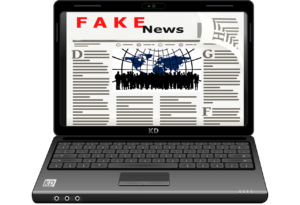 Fake news
Fake news
noun: false, often sensational, information disseminated under the guise of news reporting
Information that has been presented as fact, usually in some sort of news report, but is actually not true and is probably just being used for propaganda purposes.
The phrase “fake news” strikes right at the core of the struggle that currently exists around objective truth and the manipulation of information for political advantage. I think it proves that we’re living in a scary time where our basic right to objective and impartial news reporting is under threat, which in turn threatens our basic human rights.
“Fake news” could mean several things, depending on who you are. It’s very contentious (controversial – likely to cause disagreement) except that everyone is using it. The contentious thing is that nobody quite agrees on which news is the fake news. Different people with different political agendas use the phrase in different ways. I’m going to talk about 2 ways it’s used.
- Reporting things that aren’t true, or distorting facts in order to push an agenda.
- Calling things “fake news” in order to discredit them for some political reason.
Starting with the first point, the term “fake news” is used to talk about genuinely fake stories which are written and disseminated in the traditional media and online and which are full of mistruths, lies and deception. These sorts of stories are used either just to make profit, or for some political motive. For example, there are suggestions that there are ‘clickbait farms’, targeting certain internet users with clickbait stories or with carefully placed fake news stories which are used as propaganda to serve certain agendas, like to influence public opinion, voting behaviour and so on.
More specifically there are the claims that the voting in the 2016 US presidential election and the UK Brexit referendum were affected by campaigns of fake news on social media. The origins of this fake news could be anywhere – whichever power block or interest group wants to push a certain viewpoint, or in this case, influence the outcome of the election. The allegations are that certain groups would benefit from Trump getting in, and so they disseminated fake news about Hillary Clinton in order to tarnish her image.
This sort of thing is particularly widespread on social media, and it’s not just limited to news outlets. It means certain social media profiles, pages on Facebook, Twitter accounts etc pushing a certain narrative which isn’t really true. It can be done by anyone.
There are other examples of publishing false, distorted or clearly biased information which is passed off as news, but which is there to support a particular motive.
E.g. biased reports about the EU in the right-wing press.
Read the one about children’s playgrounds.
https://blogs.ec.europa.eu/ECintheUK/safety-rules-force-the-closure-of-uk-playgrounds/
It appears to say this: The EU is shutting down kids’ playgrounds. Kids are now unable to enjoy old-fashioned fun, like swings, roundabouts, climbing frames – and it’s all because of EU law. The EU is going to ban children from enjoying traditional British playing areas. The EU is crushing the very foundation of British culture again and this time they’re going for our kids.
Reality: This law was in fact just a voluntary guideline from a non-EU body (not even the EU) which also includes a British representative (so it’s not “them and us” – we’re involved too). It’s there to publish advisory safety guidelines, like “Hey, here are some tips if you want playgrounds to be a bit safer. Take it or leave it! OK have a nice day, take care bye!!”
It’s nothing to do with the EU and city councils have no obligation to comply with it. The story was printed as a deliberate distortion as part of an anti-EU bias. And anyway, it was probably really good advice.
I remember, growing up in the 80s in England – our playgrounds were pretty dangerous. They were just concrete on the ground. I cut my head open loads of times, and so did my brother, just falling off roundabouts or the swings. Now playgrounds have to have a kind of rubbery surface wherever there are swings or things like that. Good. British playgrounds of the past were obviously wonderful in the sense that we grew up there and childhood is full of fun memories. But a lot of kids got hurt too. Sometimes certain newspapers in the UK just look at the past through rose-tinted glasses.
Moving onto the 2nd use of “fake news” – this is when people label certain reporting as “fake” just because they want to discredit it as part of their attempt to gain control or power.
For example, people say that Trump, his entourage and his supporters use the phrase “fake news” to discredit any report that criticises him and his agenda.
Media outlets that don’t follow the current pro-Trump narrative, for example, might report on stories such as the number of people attending Trump’s inauguration or even details of inquiries and allegations about criminal acts involving the president. These reports make Trump look bad, and also could get him in serious legal trouble.
However, Trump supporters who just want to believe in the man for whatever reason (even if that reason is somehow an honest one – like, “we think Trump will be good for jobs” – a decent reason) but… people who support Trump, and certain media companies (who perhaps support Trump because the owners of those media companies have some kind of vested interest in keeping him in power) these people and media outlets simply dismiss the reports against Trump as “fake news” and part of a so-called “liberal” or “left wing” conspiracy to remove Trump from office.
Trump himself often talks about how the “mainstream media” is fake, mainly because it doesn’t say positive things about him. Perhaps this is egotism, or perhaps it’s a far more calculated and cynical attempt to silence the media. In any case, Trump and his supporters use “fake news” to discredit negative news reports about him.
You might argue that it works for other people and other groups too. Other people lie as well, or make false accusations. Yep, I’m sure they do. I’m just using Trump here as a very famous case of someone crying “fake news” in response to reporting that doesn’t fit their agenda. Feel free to name other cases of this happening, because there are plenty.
This kind of silencing of the media happens because when you control the information being received by the public you then have a massive amount of influence over how people see the world, which certainly means that you can control how you’re perceived, how your enemies are perceived, what you’re doing and so on.
Basically, when the government controls the media in your country, it’s akin to living in a controlled state. It’s almost like controlling the media, and now online media means you get to control reality itself.
It’s complicated. Things aren’t black and white.
Facts are slippery and the truth can be hard to hold onto.
It’s really hard to know which information is real and which information is fake when you consider that a single story can look very different from various points of view. Maybe we can argue that there is no such thing as objective truth because the position from which you view something can totally affect the way you see it.
Also, our attitude towards the story can cloud our judgement. Even when you don’t mean to put a certain spin on an event, you might subconsciously do it in the way you describe the story. It’s also true about the way people consume news. Confirmation bias is a well-established concept, which basically means that people tend to just understand events in ways that confirm their existing world view.
Some people might see the same event and come away with two completely different conclusions of what it all means. E.g. the London riots of 2011 when protests against police brutality turned into fighting with the police and then the damaging of public property.
This is probably a generalisation, but a Labour voter might see the riots as evidence that the government is not doing enough to support poor communities in London, and Conservative voters might conclude that the rioters just need hard justice and to take more individual responsibility. The way you already see the world affects how you interpret events and this includes the way people react to news.
E.g. I made a YouTube video about the Royal Family in 2010 or 2011 I think. I just wanted to collect footage of various people giving their opinions about the Royals. I wanted to get as many different opinions as I could find, and I wanted to collect samples of language for giving opinions.
Some comments in the comment section on YouTube oscillated between “He’s obviously against the royals” to “He’s not very objective – he’s obviously looking for positive comments about the Royals.” Some people were saying I was obviously biased in favour of the royals, others were saying I was obviously biased against them.
I just wanted to get both sides of the opinion in my video. I was looking for both positive and negative comments and was pushing for both (e.g. if someone said something positive, I asked them about a negative point, and vice versa – if someone told me their favourite royal, I’d then ask about their least favourite. If they said something negative, I’d then ask if they had any positive things to say too – so I was doing it in both directions) but people just saw one aspect – the bits they didn’t agree with. They only saw me pushing either a positive or negative agenda.
Generally, those people who don’t like the Royals thought I was trying to promote the monarchy, and those who love the monarchy just thought I was looking for negative opinions.
So, people’s existing attitude towards the subject influenced their assessment of my video, which was only supposed to provide a record of authentic language and therefore I just wanted to collect some engaging and truthful opinions. This kind of thing happens a lot. People consume information in the way that confirms their existing beliefs and prejudices.
I think this is a major aspect of life today in which we are so plugged into information systems like the internet. It’s like so much of what we experience of the world is mediated. I know it sounds scary and maybe I’m being pessimistic, but it’s like we’re getting closer and closer to the Matrix, where all of our experience is not through primary experience, but through the secondary experience of seeing it in a video, or a social media post.
It’s really hard to know what the truth is and in fact people are so bombarded by information, which is often manipulated to the point where people no longer trust “facts” and they just go with gut instinct. The whole idea of “objective fact or truth” has been worn down. Basically, we’ve been bullshitted and lied to so much over the years, and we’ve become cynical as a result that the entire system of trust has broken down and we just believe what we want to believe and that’s it. This is exactly why “post-truth” was the 2016 word of the year. It’s no longer about the facts. It’s about people being driven by emotion and feelings, not expert opinion.
But even gut instincts are manipulated by information. Go back to the Euromyths for a moment. For decades the right-wing press in the UK has been drip feeding the UK various myths about the EU, to the point that many British citizens have an instinctive distrust of anything EU related, without really being able to explain why.
This is bound to be connected to very powerful inbuilt feelings from thousands of years of British people living on an island and living in fear of the “others” who live beyond the borders of that island. That must be a deep-seated feeling of distrust, which comes from basic tribalism from a bygone era.
Perhaps that kind of feeling is what certain newspapers have profited from over the years. There’s always a large section of the British population that is innately mistrustful of the countries on the European continent. Poking this sense of mistrust is what sells papers. That’s why these papers always bang on about Churchill, show pictures of UK flags, and shock their readers with stories about how Britain is being invaded and controlled in some way. It’s not just Britain either. This happens all over the place doesn’t it?
Perhaps we are all victims of manipulation by the media, or the limitations of the media, and this doesn’t just mean the stuff on TV and in newspapers – but by the way our culture is expressed, represented and consumed by all forms of information delivery today – this means, all the media – TV, papers, advertising, films and absolutely everything online that is now part of our everyday reality. More and more of what we see is a construct, especially when we live our lives through the internet. What’s interesting to me is that reality itself is being negotiated by political forces which use our information systems in strategic ways. What can we do about it? I’m not sure! And I’m not sure I’m the one to come up with the solution!
It’s probably a good idea to get off social media or at least take it with a pinch of salt, because that (particularly Facebook as we know) is a breeding ground for fake news, twisting of facts, emotional storytelling and a lack of accountability, where you don’t really know where the information is coming from or who is behind it.
It’s also worth remembering to use critical thinking at all times. Don’t just accept what you see or read. Think about where this information is coming from, and whether it is being used to push a certain agenda. That’s easy to say of course.
It’s hard to know what to do and what to believe.
But then again, some stuff is just obviously bullshit isn’t it. Yeah.
Part 2 – coming soon…
 Adjective: made to be used once only, and then thrown away or destroyed
Adjective: made to be used once only, and then thrown away or destroyed Backstop
Backstop This comes from baseball originally, but it’s been used so much because of Brexit and the Northern Ireland border issue.
This comes from baseball originally, but it’s been used so much because of Brexit and the Northern Ireland border issue.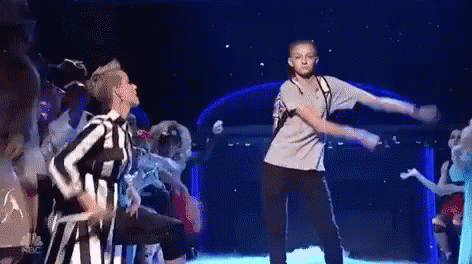 (the) Floss
(the) Floss Noun: a person, typically male, middle-aged, and white, with reactionary views, especially one who supports the withdrawal of Britain from the European Union
Noun: a person, typically male, middle-aged, and white, with reactionary views, especially one who supports the withdrawal of Britain from the European Union Gaslight
Gaslight
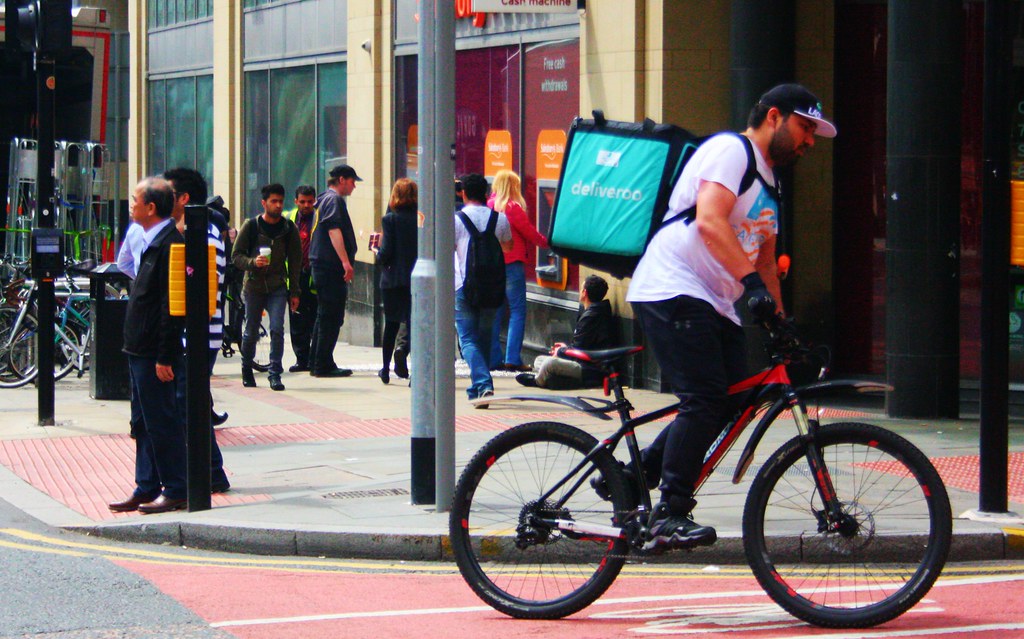 (the) Gig economy
(the) Gig economy Insta
Insta
 Fake news
Fake news